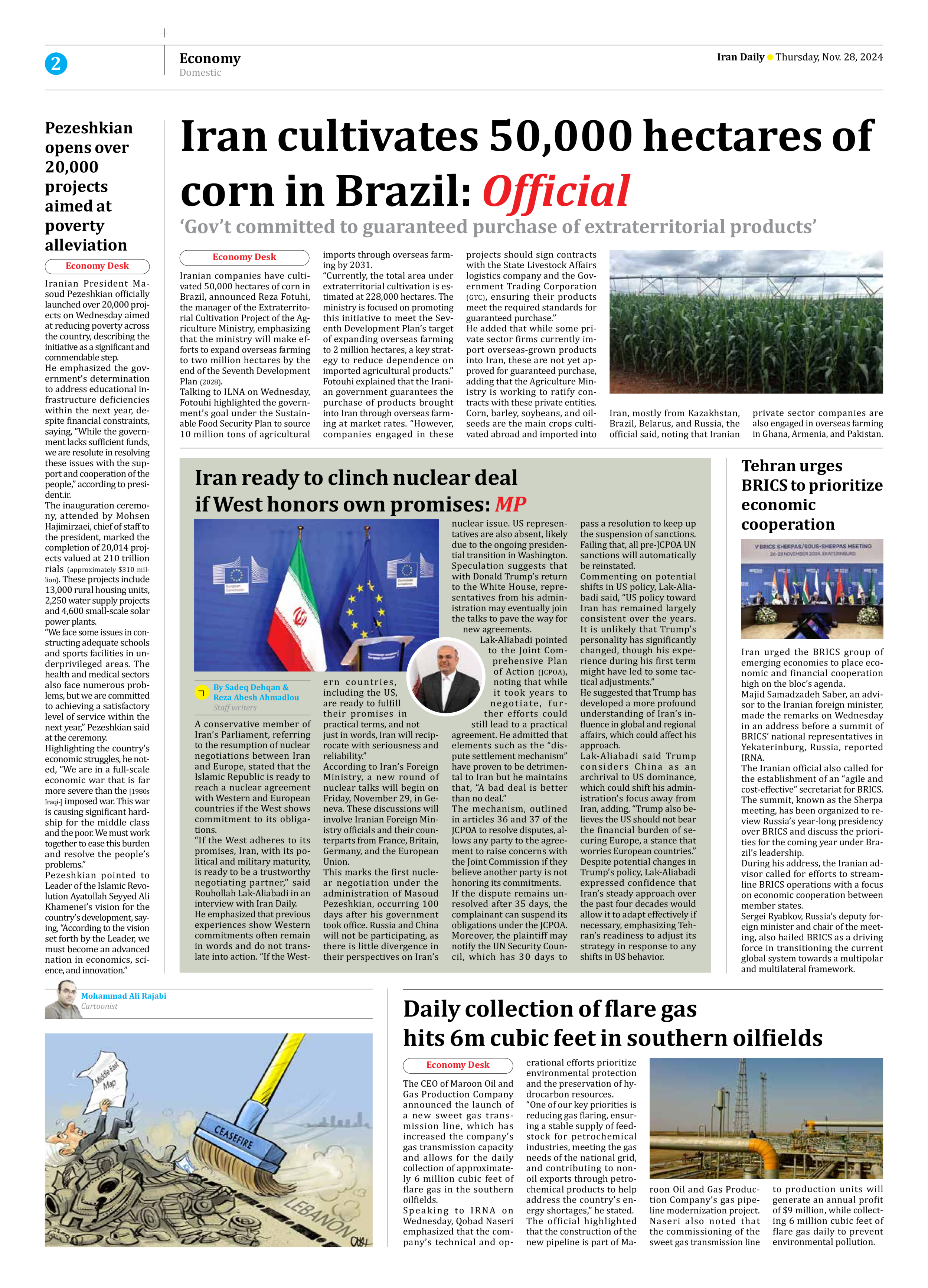
Iran ready to clinch nuclear deal if West honors own promises: MP
By Sadeq Dehqan &
Reza Abesh Ahmadlou
Staff writers
A conservative member of Iran’s Parliament, referring to the resumption of nuclear negotiations between Iran and Europe, stated that the Islamic Republic is ready to reach a nuclear agreement with Western and European countries if the West shows commitment to its obligations.
“If the West adheres to its promises, Iran, with its political and military maturity, is ready to be a trustworthy negotiating partner,” said Rouhollah Lak-Aliabadi in an interview with Iran Daily.
He emphasized that previous experiences show Western commitments often remain in words and do not translate into action. “If the Western countries, including the US, are ready to fulfill their promises in practical terms, and not just in words, Iran will reciprocate with seriousness and reliability.”
According to Iran’s Foreign Ministry, a new round of nuclear talks will begin on Friday, November 29, in Geneva. These discussions will involve Iranian Foreign Ministry officials and their counterparts from France, Britain, Germany, and the European Union.
This marks the first nuclear negotiation under the administration of Masoud Pezeshkian, occurring 100 days after his government took office. Russia and China will not be participating, as there is little divergence in their perspectives on Iran’s nuclear issue. US representatives are also absent, likely due to the ongoing presidential transition in Washington.
Speculation suggests that with Donald Trump’s return to the White House, representatives from his administration may eventually join the talks to pave the way for new agreements.
Lak-Aliabadi pointed to the Joint Comprehensive Plan of Action (JCPOA), noting that while it took years to negotiate, further efforts could still lead to a practical agreement. He admitted that elements such as the “dispute settlement mechanism” have proven to be detrimental to Iran but he maintains that, “A bad deal is better than no deal.”
The mechanism, outlined in articles 36 and 37 of the JCPOA to resolve disputes, allows any party to the agreement to raise concerns with the Joint Commission if they believe another party is not honoring its commitments.
If the dispute remains unresolved after 35 days, the complainant can suspend its obligations under the JCPOA. Moreover, the plaintiff may notify the UN Security Council, which has 30 days to pass a resolution to keep up the suspension of sanctions. Failing that, all pre-JCPOA UN sanctions will automatically be reinstated.
Commenting on potential shifts in US policy, Lak-Aliabadi said, “US policy toward Iran has remained largely consistent over the years. It is unlikely that Trump’s personality has significantly changed, though his experience during his first term might have led to some tactical adjustments.”
He suggested that Trump has developed a more profound understanding of Iran’s influence in global and regional affairs, which could affect his approach.
Lak-Aliabadi said Trump considers China as an archrival to US dominance, which could shift his administration’s focus away from Iran, adding, “Trump also believes the US should not bear the financial burden of securing Europe, a stance that worries European countries.”
Despite potential changes in Trump’s policy, Lak-Aliabadi expressed confidence that Iran’s steady approach over the past four decades would allow it to adapt effectively if necessary, emphasizing Tehran’s readiness to adjust its strategy in response to any shifts in US behavior.







